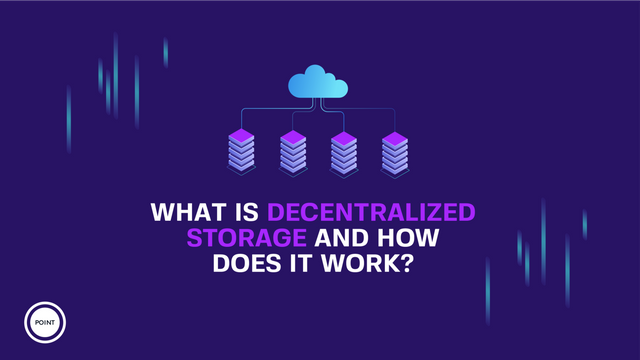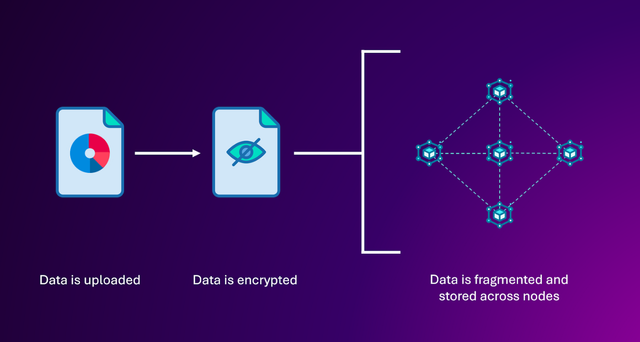
Centralization is a huge problem with today’s internet. Problems related to privacy and censorship are major causes of concern, but today we will be taking a mildly more detailed look at how decentralized storage works, and how it could be utilized by other applications built upon it.
Traditional centralized storage has always been susceptible to spying and censorship. In the aftermath of the 9/11 attacks, George Bush signed the USA Patriot Act into law. Among other things, it gave the government broader abilities to investigate and surveil just about anyone they wanted to. The full ramifications of this act were brought to light only 12 years later, when Edward Snowden, then working for the NSA revealed the sheer magnitude of the operation to the Guardian, Washington Post, and other publications, and how the government can create profiles of people based on metadata they pull from these centralized repositories.

Remember Napster? Founded by Sean Parker and Shawn Fanning, the controversial website was a peer-to-peer audio sharing platform, allowing users to share music they had on their computer. Its success was…how do I put this mildly? It’s like they tried to fly but ended up on the surface of the sun. It was shut down in 2001, but the idea of decentralized networks had started catching on.
The web is fundamentally decentralized because anyone can start a web server, but the content on it is centralized. This decades-old system is rotting. No, literally. A study led by researchers from Harvard Law School found that over a quarter of deep links (links that point to a specific webpage, rather than just a website) in The New York Times’ articles are now rotten, with this affecting over half of its articles dating back to 1996. In 2021, Yahoo Answers (where you could either get a great solution or a way to wreck everything) deleted around 16 years worth of content from its platform. An example even closer to home is finding an interesting tweet, but not understanding the full context behind it because the tweet it was quoting is gone. Imagine uploading a memorable family photo to a website, and a decade later, it has vanished into thin air.
Traditional storage is also expensive. Using Firebase or AWS can cause data costs to run into the tens of thousands of dollars very very easily. Since a few big companies control a large chunk of the pie, they could just do a Martin Shkreli one day, and increase prices by 500%. If you have a significant amount of data online, you’re either paying up or beginning the long and arduous procedure of moving all your architecture.
Decentralized Storage breaks up our data, and distributes these fragments into nodes all across the world, thus making your data accessible from any corner of the globe. All your data is encrypted, so your privacy is still protected and no one on the other side of the world is going through your embarrassing texts.

Decentralized storage is also very robust with minimal downtimes because there isn’t a single point of failure. A great example of decentralized storage is Arweave.
Arweave wanted to create a permanent storage solution for users to ensure they never lose access to their data; a month, year, or decade later. Arweave allows users to rent out their unused disk space for storage (so they function as nodes) in exchange for payments. Arweave designed a system so that the funds you pay to store your data online, are pumped into an endowment that will be able to pay nodes from the interest generated from the endowment itself. So, the next time you forget to pay your credit card bill, your data will still be accessible.
As a result, this decentralized storage can be used as the foundation to build applications with high security and privacy concerns. Centralized storage is fast becoming outdated, and while there are a few concerns surrounding distributed storage such as speed and scalability, research and development by the leading organizations in this space constantly pushes the envelope forward.
Telegram community at: https://t.me/pointnetworkchat
Point Network is decentralizing everything
Downvoting a post can decrease pending rewards and make it less visible. Common reasons:
Submit
and they do it perfectly
point browser is cool
Downvoting a post can decrease pending rewards and make it less visible. Common reasons:
Submit
I tried their Point Browser
I think it has a potential
Downvoting a post can decrease pending rewards and make it less visible. Common reasons:
Submit
Those guys deserve the attention
Downvoting a post can decrease pending rewards and make it less visible. Common reasons:
Submit
point network is underrated
Downvoting a post can decrease pending rewards and make it less visible. Common reasons:
Submit